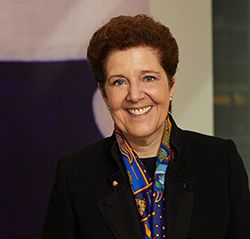
The Center for Neurogenetics at Weill Cornell Medicine investigates the influence of genes—and environmental interactions with the genome—on the development of neurological disorders in children and adults. Part of Weill Cornell’s Feil Family Brain & Mind Research Institute, we are a research hub for the whole College where clinicians, basic scientists, pathologists, molecular biologists, and computer scientists collaborate to help diagnose and treat patients with genetically influenced neurological disease. Together we advance efforts for the patients served at Weill Cornell Medicine and contribute to worldwide understanding of the genetic basis of neurological disorders. We invite you to explore this site to learn more about our work and how you can get involved.

M. Elizabeth Ross, M.D., Ph.D.
Director, Center for Neurogenetics
M. Elizabeth Ross, M.D., Ph.D.
Director, Center for Neurogenetics
Feil Family Brain & Mind Research Institute
Weill Cornell Medicine
To pursue the contributions of gene mutation, sequence variation, genome regulation, and epigenetic modification on the operation of the human genome in health and diseases of the nervous system.
We are in the midst of a revolution in understanding the genetic components that underlie nervous system disorders such as epilepsy, schizophrenia, autism, and dementia. Identifying exactly which genetic alterations contribute to neurological disorders, and how DNA-level differences translate into observable neurological disease, is of vital importance. The Center for Neurogenetics at Weill Cornell Medicine is on the leading edge of this research, working with patients to understand the origins of their disease and available therapies, helping families uncover hereditary risks, and creating a knowledge base that advances research and the development of tomorrow’s treatments for neurological disease.
“The effort here is particularly important because it’s multidisciplinary. We bring together researchers and clinicians of different types. We’re speaking to one another in ways that don’t happen in many other institutions.”
Christopher Cunniff, M.D.
Professor of Pediatrics
Weill Cornell Medicine